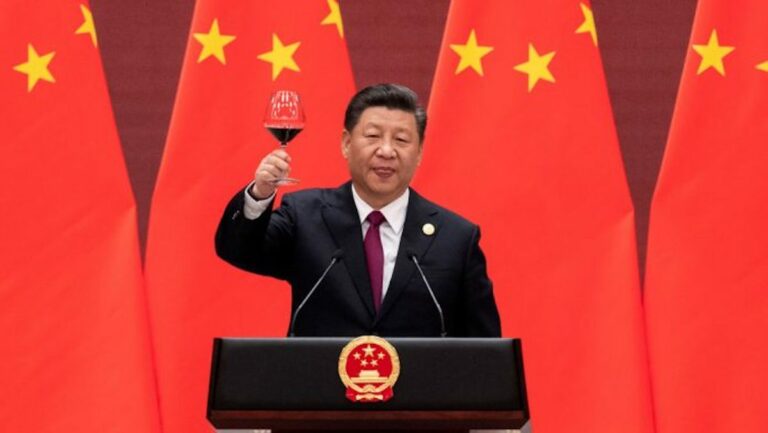How is Starbucks Staying on Track with Competitors in China?

Starbucks continues to expand its market share in China. By the end of last year, it has already reached 13,5 million active users in 4,600 stores all over the country and had opened many new stores even during the pandemic crisis. How is it possible?
Starbucks keeps growing during the pandemic in China
The well-known multinational company has established to cover the whole territory of China with over 55,000 stores in the fiscal year 2030, getting closer to the 2022 objective: 6,000 stores in 230 cities by the end of the year. And even if it seems odd, despite the world economic crisis, Starbucks has been able to open 600 stores during fiscal year 2020!
Cost-Effective Agency
KPI and Results focused. We are the most visible Marketing Agency for China. Not because of huge spending but because of our SMART Strategies. Let us help you with: E-Commerce, Search Engine Optimization, Advertising, Weibo, WeChat, WeChat Store & PR.

How Starbucks is becoming more and more competitive in China?
As the Starbucks’ group president John Culver stated, the company is acquiring market share through investing in digitalization and innovation, whereas opening new stores at a rapid pace in their most interesting market, that is China. China is precisely the country where Starbucks grows faster.
Read as well How to Start a Successful Franchise in China
Through Innovation & Digitalization, Starbucks continues its Chinese rise
During the last years, the company has invested a lot of money to renew itself. Among the latest innovation, there are:
- a new kind of retail service called “Starbuck now”. It allows consumers to place orders online before to go to the store for picking up their meal;
- the Starbucks Coffee Innovation Park, a project that has the aim of setting the new standards for the company’s roasting and manufacturing network and, also, helping to achieve its eco-friendly mission. The project costs over $156 million.
Both decisions are in perfect alignment with new trends in China, which are the increasing consumption of eco-friendly products and the demand for food and beverages at home.
The Coffee Market in China: Starbucks is the leader of the coffee shop market
Despite coffee being an unpopular drink in China, globalization changes the way of living of many Chinese, especially the youngest. Tea had no rival in the country till 2000 when the consumption of coffee started to grow. Just one year before Starbucks had opened its first café in Beijing.

So, it is assumed that, as western coffee shops arrived in the country, the Chinese lifestyle changed. And, not by chance, the annual consumption rate has been around 18% since 2012.
How fast has grown the coffee market in China in 2020?
According to Statista, the consumption of coffee in China has been 3,25 million 60-kilogram bags of coffee for the year between June 2019 and 2020. Not only Statista, but also Euromonitor International reported an increase in coffee consumption among Chinese during the pandemic, and it specifically states that consumers this is mainly due to panic buying for the pandemic situation.

China market’s potential for foreign coffee enterprises is huge
China’s per capita coffee consumption is only around six cups, however, as the main target is younger generations, the market has incredible potential. In addition, foreign enterprises are the undisputed leaders of the market, with Starbucks ranking 1st as “the most popular coffee shop in China”.
What should you know about the Chinese relationship with coffee?
Chinese people saw the “western drink” as an occasion to be social. In fact, they were used to drinking coffee in multinational chains in groups of people.
However, as the COVID-19 has changed people’s routines, there was a change in the purchasing behavior of Chinese people. Pandemic, unexpectedly, caused compulsive shopping of this beverage for “at-home use”, making e-commerce popular even in this sector. Not by chance, Starbucks has created “Starbucks Now”.

On the contrary, while Chinese consumer behavior is changing, the same is not true when we talk about taste. In fact, the Chinese continue to prefer sweety coffee, like Frappuccino and hate black coffee.
How can a foreign company sell coffee in China?
Successful companies in China all have the same characteristics: give great importance to technology and know-how. So, if you want to enter the Chinese market you must know that it is essential to promote your brand through digital platforms and invest a lot to sell a unique service or a unique product. If you sell both it is even better.
Which platforms a coffee company should consider to promote and sell its brand in China?
E-COMMERCE PLATFORMS
In China, shopping online is mainly based on e-commerce platforms, a purchasing behavior that has become popular in the western world with the arrival of Amazon, but that has not absolutely reached the Chinese level yet.
The most used e-commerce platforms in China are:
- Taobao
- Tmall and Tmall B2D
- JD.com
- Little Red Book (Xiaohongshu)
- Suning
- Kaola
- Pinduoduo
But let’s see what is the most suitable e-commerce platform for a coffee brand. While Taobao is suggested to little business owners because is mainly a C2C platform that sells low-cost products, in the B2C sector the leading platform is Tmall, followed by JD.
Also, Xiaohongshu is becoming very popular in China, but it’s easier to find life-style products on it, like make-up, clothes, or travel. Other interesting platforms for foreign B2C companies are Pingduoduo and Kaola. The first is the fastest-growing e-commerce platform at present, the second offers lower cost and less complicated procedures to foreign companies for being accepted.
Tmall: China’s biggest B2C platform

The second most popular e-commerce platform is Tmall. It is very difficult to open a store on it because the platform requires documents that can guarantee the quality of your products. In fact, a customer that buys on Tmall must receive a high-end product. Many luxury international Giants have a store on it.
JD.com: the most trusted e-commerce platforms
With about 400,000 products, JD.com is the largest B2C online retailer in China. There is also an English version of the website that is called en.jd.com. JD.com, like Taobao, guaranteed fast delivery service and product quality. The main problem with the platform is that does not have good customer service. Foreign companies can opt to sell on JD worldwide. It offers cross-border services.

If you have no experience selling in China can be a good idea to choose to work with this distributor to test the market as you don’t need a physical presence in China to be on it. Also, because JD owns an incredible logistic system and supplies warehousing, delivery, and after-sales service.
Kaola: The Cross-border eCommerce platform

Kaola is surely one of the platforms that should consider if they are entering the Chinese market and don’t own a company or license to sell in China. It is considered a platform that sells high-quality and original products, and this is a feature for a brand that sells foods or other health-related products. In addition, Kaola.com low-cost services to brands thanks to the organization, which consists in negotiating directly with manufacturers.
Pinduoduo, the most innovative eCommerce platform in China
Place a store on Pinduoduo can be a great investment nowadays. This is because Pinduoduo is the fastest-growing e-commerce platform. Its success is mainly due to its unique way to sell products. Pinduoduo, in fact, is social e-commerce platform is based on affiliate marketing and gamification.

Its users are the main promoters of the platform. They try to spend less involving many people in the purchasing. Coupons, lottery, hongbao rankings, and other tricks have been amazing tools that let the company become popular in China.
Distributors only want to work with well-known brands
Before deciding to sell your product in China, you should consider many factors. One of these is how can your brand convince a distributor, like an e-commerce platform, to work with. It sounds weird but Chinese distributors do not want to work with unknown brands because they want to sell fast and easily. So before selling in China, one of the first things to do is branding.
How can a coffee brand do Branding in China?

- First of all, a company should have a landing page in Chinese and the Chinese domain “cn”. Only in this way Chinese customers can reach you. Since Chinese searching engines can only find websites with Chinese domain.
- Doing SEO on Baidu. Baidu is the most used search engine in the country. To be visible on it, you can pay ads, PPC, Banner. It is suggested to not invest too much in a paid advertisement for the content present on your own website. Instead, the best way to be visible on Baidu is through link present on many other websites and digital platforms. Chinese do not trust the information present on your website, they look for reviews of other pages.
- Q&A forums, like Zhihu, are one of the favorite kind of platforms where the Chinese like to look for information about brands.
- Another place your brand cannot forget to invest in being present is Social media. China has numerous social media, and almost all brands have an account on at least one of them. According to your target and your goal, you should choose the best social media platform or platforms for you. Click here to know more about the Chinese social media world.
- KOLs (Key Opinion Leaders) and events can be the perfect combination to attract a large number of Chinese. Also, live streaming can be added to this strategy to be even more attractive for the youngest generations.
- KOCs (Key Opinion Consumers) can be an essential point of your strategy. Consumers usually trust them more than KOLs, so companies often have a better ROI choosing to work with them rather than with a KOL.
What can we take from “How is Starbucks staying on track with competitors in China”?
China is a huge market with great potential for coffee brands but is also a complex market that asks companies to keep investing in innovation and digitalization in order to be competitive. Also, the first step in the Chinese market must be done in the digital ecosystem.
So, if you want to be ready for this challenge it’s necessary to rely on a Marketing Agency with several years of expertise.

GMA is an innovative marketing & E-Commerce Agency. Our team finds solutions to help your brand enter China through different services: creation and management of social media accounts, management of your online reputation, branding, SEO, and much more.
If you liked to read this article, you should also read:







I agree with the innovation and digitalization part. Starbucks is a refuge for foreigners in China, and is very popular thanks to its worldwide reputation and branding!
Hello,
I am a distributor in China, and I am searching a coffee brand to launch a franchise store or coffee brand in China.
Please contact me via message or WeChat